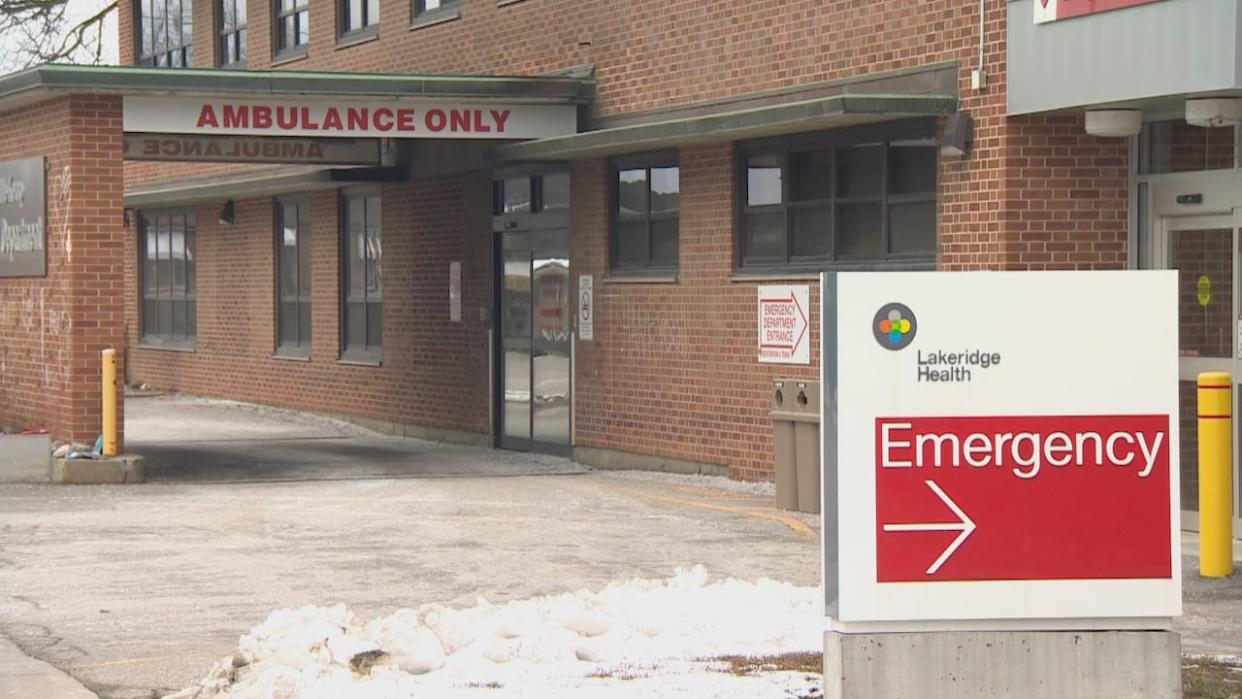Durham Region calls for support amid opioid, homelessness crisis

Durham Region is calling for funding to support its homelessness and opioid crisis.
Paramedic services in Durham Region fielded 127 calls for suspected opioid overdoses between Jan. 1 and Feb. 11, the region said in a news release — an increase of 72 calls compared to the same time period a year prior.
The call comes a week after Belleville declared an addiction emergency after 14 people overdosed in the span of two hours on Feb. 6. Less than 48 hours later, the city recorded another 23 overdoses.
"We've seen cities and towns across Canada facing mental health, addictions and homelessness crises," said Durham regional chair John Henry said in the release. "Durham Region is not immune."
"The sad fact is that we are seeing it much more often," said Henry. "Our local hospital network reported more than 14,000 emergency department visits for mental health issues and substance abuse."
The region says it has also seen a 67 per cent increase in homelessness over the past year.
"We are doing what we can, but we can't keep up," said Henry. "We need to fix it now — and it is fixable."
The growing crisis has put significant strain on the region's emergency services and Durham says it can't fix the situation without the support of all levels of government.
Others are joining the call for more funding to address the crisis.
"It's a problem that is very complex, something that is going to take a coordinated approach and something that will require an end to the finger pointing," Pickering Coun. Maurice Brenner told CBC Toronto in an interview.
"You have to use a multidisciplinary approach to be able to deal with the problems and to come up with solutions."
That support means more than temporary funding, and funding for shelters, he added.
Jennifer French, an NDP MPP for Oshawa, said social service groups are already providing solutions, but higher levels of government aren't giving them the sustainable funding they need for success.
"We look around our communities and we see hurt and we see harm and we don't see that stopping," said French.
Lack of housing 'just makes it worse': advocate
Some community members point to a lack of housing as one of the main problems fuelling the homelessness and substance abuse crisis.
Geralda Bray, manager of housing services at the John Howard Society of Durham Region, says there's been a dramatic shift in the availability of housing.
"We were able to find housing in the past and we were able to house at least some people." said Bray. "But now, we're finding it just so difficult to house people because they can't afford it. So there is a big issue with income."
Many of Bray's clients seeking housing services have addictions and mental health problems, which she says further intensifies the situation.
"Not having a roof over your head, it just makes it worse."
Provincial mental health support
Ontario's Ministry of Health says it is currently supporting the "mental health and wellbeing of all Ontarians" through its Roadmap to Wellness initiative — a $3.8-billion dollar investment over 10 years which intends to build a "modern, world-class mental health and addictions system" for the province.
"As was announced in our 2023/20224 budget, our government provided a five per cent increase in base funding for all community based mental health and addiction organizations," said Hannah Jensen, spokesperson for the Ministry of Health.
An additional $202 million each year was invested in two programs to "help those experiencing or at risk of homelessness," she added.
The statement also pointed to an investment of $18,683,900 for Durham Region for 2023 to 2024, which the province says is a 64 per cent increase over the year before.
The province says it will also add a $90-million investment over three years to boost capacity in addictions services following the challenges of the pandemic.
Henry is calling for a meeting with the prime minister and the premier, as well as a national summit on homelessness and addiction.


